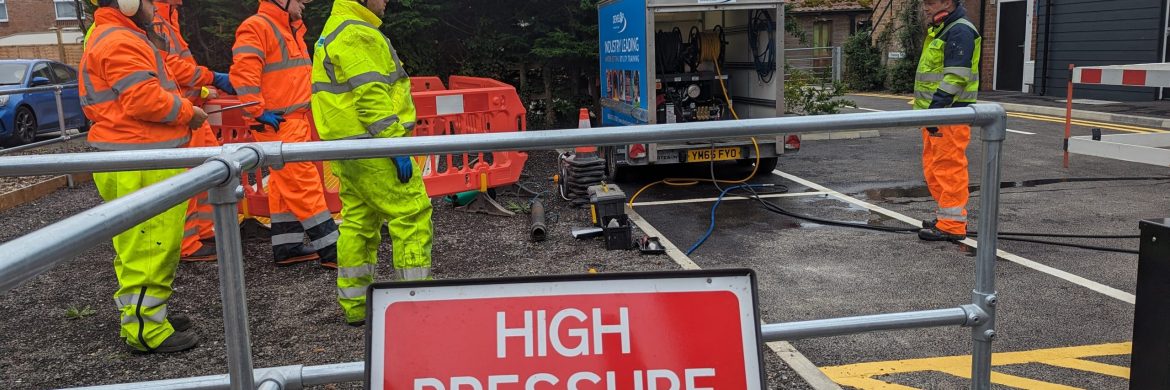Managing Legionella – how much do you know?
01 April 2024 Blogs
Waterborne diseases pose a significant threat to public health, and among them, Legionnaires’ Disease is a serious and potentially fatal illness. Legionella, the bacteria responsible for causing a potentially severe form of respiratory infection can thrive in various water systems. Therefore, all organisations need to be sure that they meet the relevant HSE guidelines to effectively manage the risks.
Legionella bacteria are found in warm water environments such as cooling towers, hot tubs, and plumbing systems and will multiply when temperatures are between 25° and 45°C. When contaminated water droplets are inhaled, individuals can contract Legionnaires’ disease, leading to pneumonia-like symptoms. To effectively manage Legionella, it’s crucial to first understand its habits and potential breeding grounds.
If you are an employer, self-employed or someone in control of premises, it is important that you understand and mitigate the risks associated with Legionella. You are principally responsible for the health and safety of anyone affected (unless otherwise agreed through a contractual arrangement for legionella) and should take the necessary precautions to reduce the chances of exposure to the disease.
Here are some ways that you can do that:
Identify Environments At-Risk of Legionella
Legionella thrives in stagnant or warm water, making cooling towers, spa pools and hot water systems common breeding grounds. Additionally, places like hospitals and long-term care facilities, where individuals may have compromised immune systems, are at higher risk. Identifying and regularly monitoring these environments is crucial in preventing Legionella outbreaks.
Temperature Control
The primary method used to manage Legionella is to operate water services at temperatures inhospitable for the bacteria. Hot water cylinders should therefore store water at 60°C minimum, and distribute at no less than 50°C within one minute. Cold water should be stored at less than 20°C and distributed at less than 20°C within two minutes.
However, a recent update to Part L of Building Regulations (Conservation & Power) now emphasises that for newly installed or refurbed heating systems, heating system flow temperatures should not exceed 55°C, and ideally, they should be kept below this threshold.
While this change brings about several advantages in terms of energy efficiency and environmental impact, it also introduces a new consideration for those that manage secondary hot water systems heated by them — the increased risk of Legionella bacteria formation in hot water systems due to decreased hot water flow, return and distribution temperatures.
You can find out more about these changes here.
Routine Checks
A routine inspection and clean is an obvious, but important part of preventing Legionella. If necessary, periodic water samples should be analysed. How often depends on the system and the outcome of any risk assessment. Further guidance can be found here on the HSE’s website.
Flush the Pipes
Legionella can multiply in hot and cold water systems. Stagnant water attracts Legionella growth, so ensuring all dead ends are removed and all outlets are flushed out at least weekly, will help to reduce the risk.
System Design
When designing hot and cold water systems, pre-empt the risks of Legionella by keeping pipe-work as short as possible, include adequate insulation and minimise heat gain/thermal transfer from pipes. Contamination should also be prevented i.e. tanks to be fit with lids, insect screens where pipes are open to the environment and control the risks of backflow
For a more in-depth overview, please visit the HSE website: https://www.hse.gov.uk/healthservices/legionella.htm
In conclusion
As a business, the best way to ensure you are fulfilling your duties and managing the risk effectively is to ensure people responsible for managing systems and implementing controls are appropriately trained and receive regular refresher training.
Develop Training offer a number of Legionella courses including,
Legionella & ACOP L8 Awareness
Legionella: Role of the Responsible Person / Duty Holder / Landlord
Management of Legionella Bacteria in Hot & Cold Water Systems
Legionella Risk Assessment of Hot & Cold Water Systems
To view the full list of available Water Systems & Legionella training offered by Develop, click here: https://www.developtraining.co.uk/training/estates-and-facilities-management/water-systems-legionella/
Contact us
If you have any questions or are unsure which training course is right for you, please contact our Customer Service team on 0800 876 6708 or email enquiries@developtraining.co.uk



























